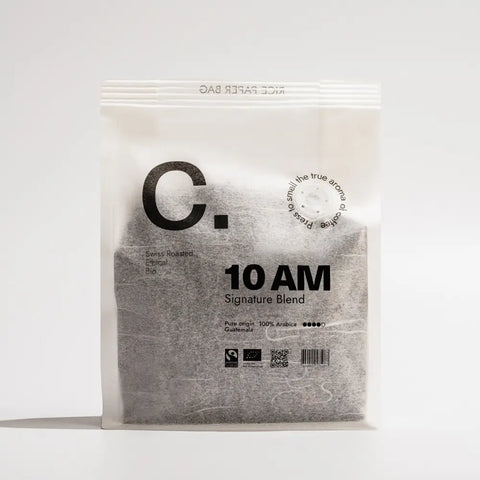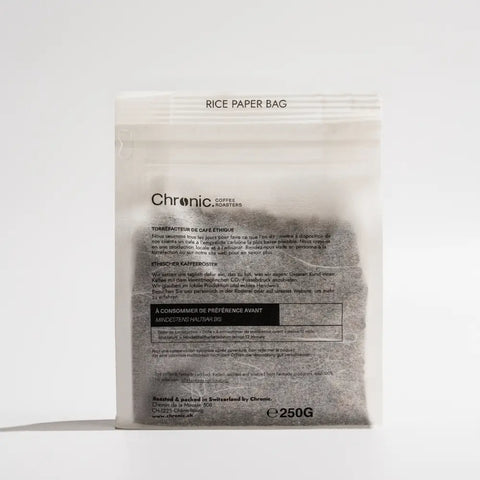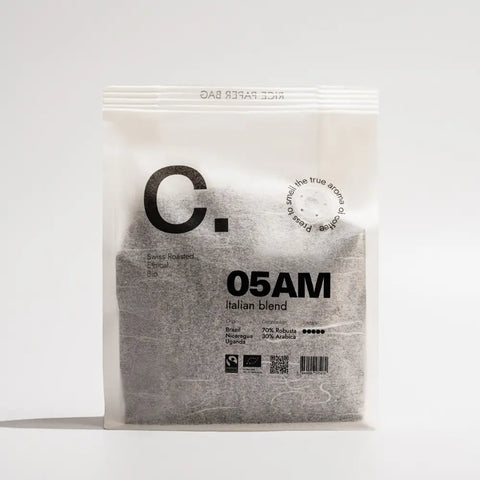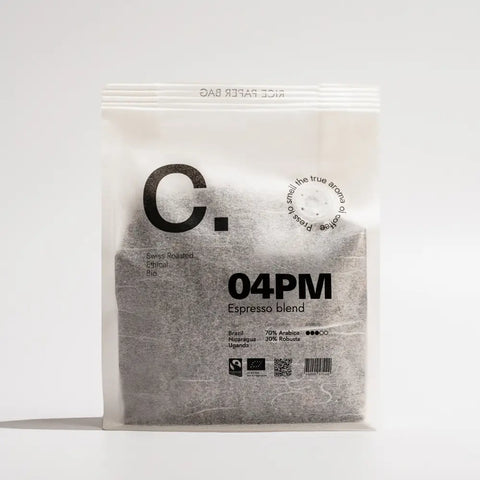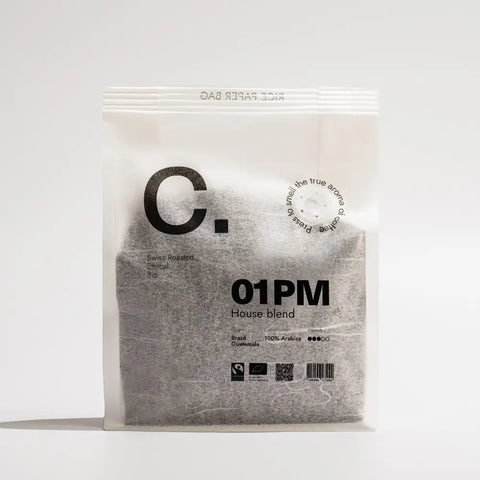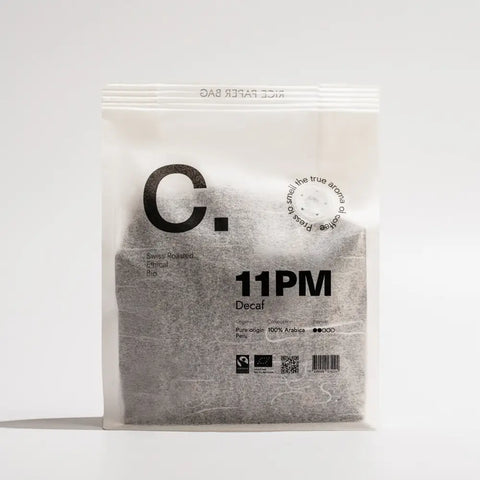
Specialty coffee, the Chronic. way
At Chronic., specialty coffee is much more than hand-picked beans. It’s a way of doing things, a mindset, an obsession with balance and flavour. Every lot is chosen for its quality, its origin, and the passion behind it, then roasted with precision in our Swiss workshop to reveal its full complexity.
Our collection unfolds in three complementary worlds — three ways to live the specialty experience.
- The Permanent range features our signature coffees, the ones you come back to day after day without ever getting tired of them.
- The Seasonal range celebrates living coffee — the one that changes with harvests and new discoveries.
- And the Exceptional range is our playground, reserved for rare coffees and confidential micro-lots.
Three ranges, one promise: to offer the very best of specialty coffee, with precision, freshness, and respect in every cup.
What is specialty coffee?
Specialty coffee is the best of the best in the coffee world. It meets precise standards set by the Specialty Coffee Association (SCA), evaluating both the quality of the bean and the meticulous human effort behind every cup.
To be classified as 'specialty', a coffee must meet four major criteria: a minimum score of 80/100 in tasting, perfect traceability of origin, absence of major defects, and a well-managed production process from harvest to roasting.
Beyond the numbers, specialty coffee is distinguished by its sensory criteria: balance, complexity, aromatic clarity, and lingering taste. It reveals the flavor of a terroir, not that of an industrial process.
This approach also demands transparency, sustainability, and respect, for the producers, nature, and those who enjoy it.
As a specialty coffee roaster, this is the vision of coffee we defend: demanding, authentic, and deeply human.SCA Score

Traceable origin

No major defects
Production process
The essentials to bring out your coffee’s full potential
There are dozens of ways to drink your coffee — none better than the others. What really matters is finding the one that feels right for you. We’ll walk you through it, it’s easy, promise — now it’s your turn to try.FAQ — All you need to know about specialty coffee
Specialty coffee is a meticulous process that starts right at the source — the plantation.
Producers’ role. Farms and cooperatives committed to specialty coffee involve their entire community to reach excellence. Why? Because specialty coffee sells at a higher price, allowing them to reinvest in production techniques and, most importantly, in better living conditions for their workers.
Hand picking. Only perfectly ripe cherries are harvested, one by one. This careful selection ensures exceptional quality from the very beginning.
Processing and sorting. Washed, natural or honey — each method shapes the coffee’s aromatic profile. Like the Zarza Geisha from Jhonatan Gasca in Colombia, naturally processed to reveal notes of passion fruit and orange. (Learn more about Colombian coffee.)
Artisanal roasting. In our Swiss workshop, we adapt each roast profile to the lot, bringing out the specific aromatic nuances of every origin.
Total traceability. Every coffee tells a story — like the Janson family in Panama with their Geisha 929, or Luis Ernesto Nieto in Colombia with Los Aguacates.
From terroir to your cup, respect guaranteed.
Specialty coffee is deeply committed to sustainable production. Here are some of the most common eco-friendly practices:
- Permaculture: crops are organised to mimic natural ecosystems, reducing environmental impact.
- Organic farming: no chemical pesticides are used, protecting both soil health and farm workers.
- Water management: efficient irrigation systems help minimise water use.
- Biodiversity: coffee trees grow alongside native plants and trees, maintaining ecological balance.
- Renewable energy: solar dryers and other green technologies reduce the carbon footprint.
These sustainable practices make specialty coffee a truly environmentally conscious choice.
Sustainability doesn’t stop at production — it extends to packaging and logistics. Many specialty roasters now use compostable or recyclable packaging to reduce waste. Some even adopt zero-waste approaches, using reusable bags or glass containers. On the logistics side, delivery routes are optimised to limit CO₂ emissions.
These initiatives show that specialty coffee isn’t just about an exceptional taste experience — it’s also a commitment to a greener future.
Rigorous selection, exceptional terroirs, sustainable practices, and artisanal roasting. Every step is designed to unlock the full potential of the bean. This is pure craftsmanship — each coffee reveals complex aromas you simply won’t find in industrial blends.
Yes, exceptional coffees cost more than our conventional range. Why? Because behind every cup lies an uncompromising chain of quality. Producers are paid fairly for their meticulous work, and we roast each lot with the precision of a goldsmith. These coffees consistently achieve high scores from international certification bodies.
The result? Full traceability, a positive impact for producers, and above all, the guarantee of a unique taste experience. The price reflects both this exceptional quality and the ethical chain behind it.
Ordering coffee from us means joining an adventure that puts quality at the heart of everything. As passionate Swiss roasters, we guide you in your choices, share our roasting secrets, and give you brewing tips — so you can truly enjoy every cup.
To choose a true specialty coffee, you need to know how to read the label. Here are the five key pieces of information to look for:
- Origin: the producing country should be clearly stated.
- Altitude: growing altitude affects flavour — look for precise information.
- Variety: the coffee variety (Arabica, Bourbon, etc.) gives clues about the aromatic profile.
- Certifications: organic or Fairtrade labels guarantee ethical and sustainable practices.
These details will help you make an informed choice and discover the very best specialty coffees.
Start with your local roasters — passionate artisans with sharp selections and genuinely useful advice.
At Chronic., we roast in our own workshop in Switzerland and deliver straight to your door! (Anywhere in Switzerland and across Europe.)
Independent coffee shops and their baristas are also worth a visit — they know how to brew a great cup and can help you discover new origins.
Coffee markets and festivals are another great way to meet roasters and producers directly. You’ll discover the story behind each bean and support local initiatives. No middlemen, no nonsense.







